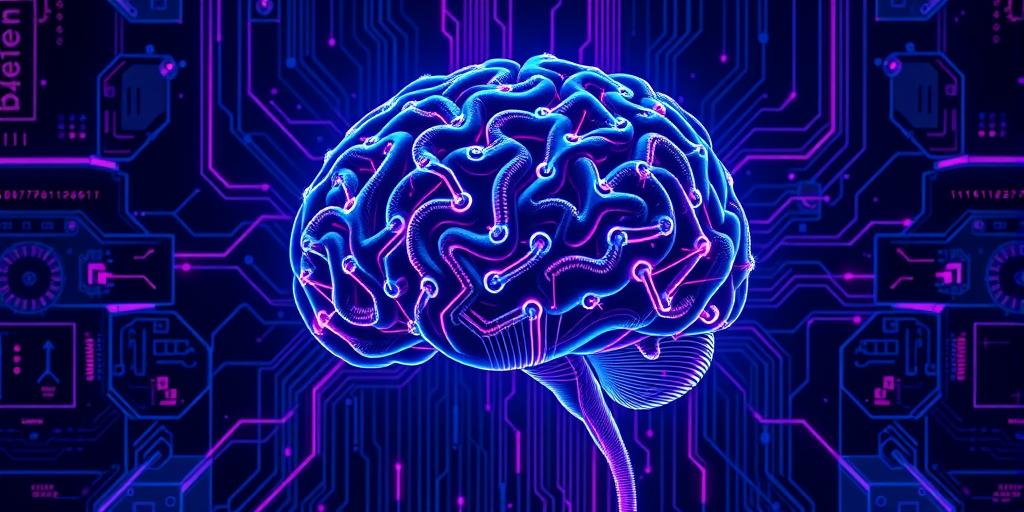Have you ever wondered if artificial intelligence could truly surpass human intelligence? Prepare to have your mind blown because the answer might surprise you. We’re diving deep into the fascinating debate about whether AI can truly outsmart the human brain, exploring the strengths and weaknesses of both sides and examining the future of human-AI interaction. Get ready to question everything you thought you knew about intelligence!
The Power of the Human Brain: Intuition, Creativity, and Emotional Intelligence
The human brain, a marvel of evolution, possesses capabilities that current AI systems simply can’t match. Our capacity for intuition—that gut feeling that guides us in complex situations—remains a significant hurdle for AI. While AI excels in pattern recognition and data analysis, it often lacks the creative spark, the ability to think outside the box, and generate truly novel solutions that humans consistently display. This creative genius allows us to produce groundbreaking art, music, literature, and innovative technologies that transcend the limitations of logical algorithms.
Emotional Intelligence: A Human Advantage
Furthermore, human intelligence encompasses emotional intelligence—the ability to understand and manage our emotions and the emotions of others. This nuanced understanding forms the bedrock of empathy, compassion, and effective communication, all essential for building relationships and navigating the complexities of social interactions. Current AI models, while showing progress in natural language processing, often struggle to truly grasp the subtle nuances of human emotion. AI’s lack of emotional intelligence also limits its ability to make ethical decisions in complex scenarios, a realm where human judgment remains crucial.
The Biological Advantage
The biological underpinnings of the human brain also offer advantages. Our brains are not just powerful processors; they’re adaptive, self-healing, and constantly learning. We adapt to new situations and acquire knowledge through experience in ways that AI, currently, cannot replicate. This adaptability, coupled with our inherent capacity for self-reflection and critical thinking, enables continuous improvement and learning, giving us an ongoing edge over current AI technology.
AI’s Strengths: Processing Power and Speed
Despite the remarkable capabilities of the human brain, AI possesses its own distinct strengths. One key advantage is its unparalleled processing power and speed. AI systems can crunch vast amounts of data and identify patterns that would take humans an impractical amount of time, if it were even possible. This speed and efficiency make AI invaluable in fields like scientific research, medical diagnosis, and financial modeling, where rapid data analysis is critical. Consider how quickly AI can analyze medical images for potential cancerous growths, highlighting areas requiring further scrutiny far more efficiently than a human radiologist.
Algorithmic Efficiency: A Key Differentiator
Another advantage of AI lies in its algorithmic efficiency. AI algorithms are designed to perform specific tasks with remarkable precision and consistency, free from the biases and errors that can plague human judgment. They provide repeatable, accurate results in a wide range of applications, from manufacturing to logistics. They are particularly efficient in environments requiring high precision and consistency, which is why they are increasingly used in the automation of various tasks in manufacturing industries.
Machine Learning and Adaptation
Recent advancements in machine learning, a subset of AI, are also narrowing the gap between human and artificial intelligence. These systems are designed to learn from data and improve their performance over time, effectively mimicking some aspects of human learning. Machine learning algorithms are used to power self-driving cars, advanced fraud detection systems, and personalized recommendation engines. The algorithms in these systems are continually refined and improved based on new data and feedback.
The Future of Human-AI Collaboration
Instead of viewing AI and human intelligence as competing forces, a more productive perspective is to see them as collaborative partners. The future likely involves a symbiotic relationship where human intuition, creativity, and emotional intelligence complement the processing power and algorithmic efficiency of AI. This partnership can lead to breakthroughs in scientific discovery, technological innovation, and problem-solving capabilities that surpass what either could achieve alone. Imagine scientists using AI to sift through massive datasets of genomic data, and then using their human intuition to interpret the results. This is the future of human-AI collaborations.
Navigating Ethical Considerations
However, the increasing sophistication of AI also raises important ethical considerations. As AI systems become more powerful, it’s crucial to address potential biases in algorithms, ensure data privacy, and establish responsible guidelines for the development and deployment of AI technologies. Careful consideration of these issues ensures that AI benefits humanity as a whole, rather than exacerbating existing inequalities.
We must consider the responsible development of artificial intelligence and consider its impact on human society, including issues of job displacement, privacy, and fairness. It’s a dynamic conversation that needs to constantly evolve.
The Verdict? It’s Complicated!
The question of whether AI can outsmart the human brain isn’t a simple yes or no. While AI excels in specific tasks, exceeding human capabilities in speed and precision, the human brain retains unique strengths in areas like intuition, creativity, and emotional intelligence. The future likely involves a collaborative partnership, leveraging the strengths of both to solve complex problems and unlock new possibilities. The journey towards this future requires continuous discussion about responsible AI development, ethical considerations, and the ongoing evolution of human-AI collaboration. Are you ready to embrace this exciting future? Let us know your thoughts in the comments below!




